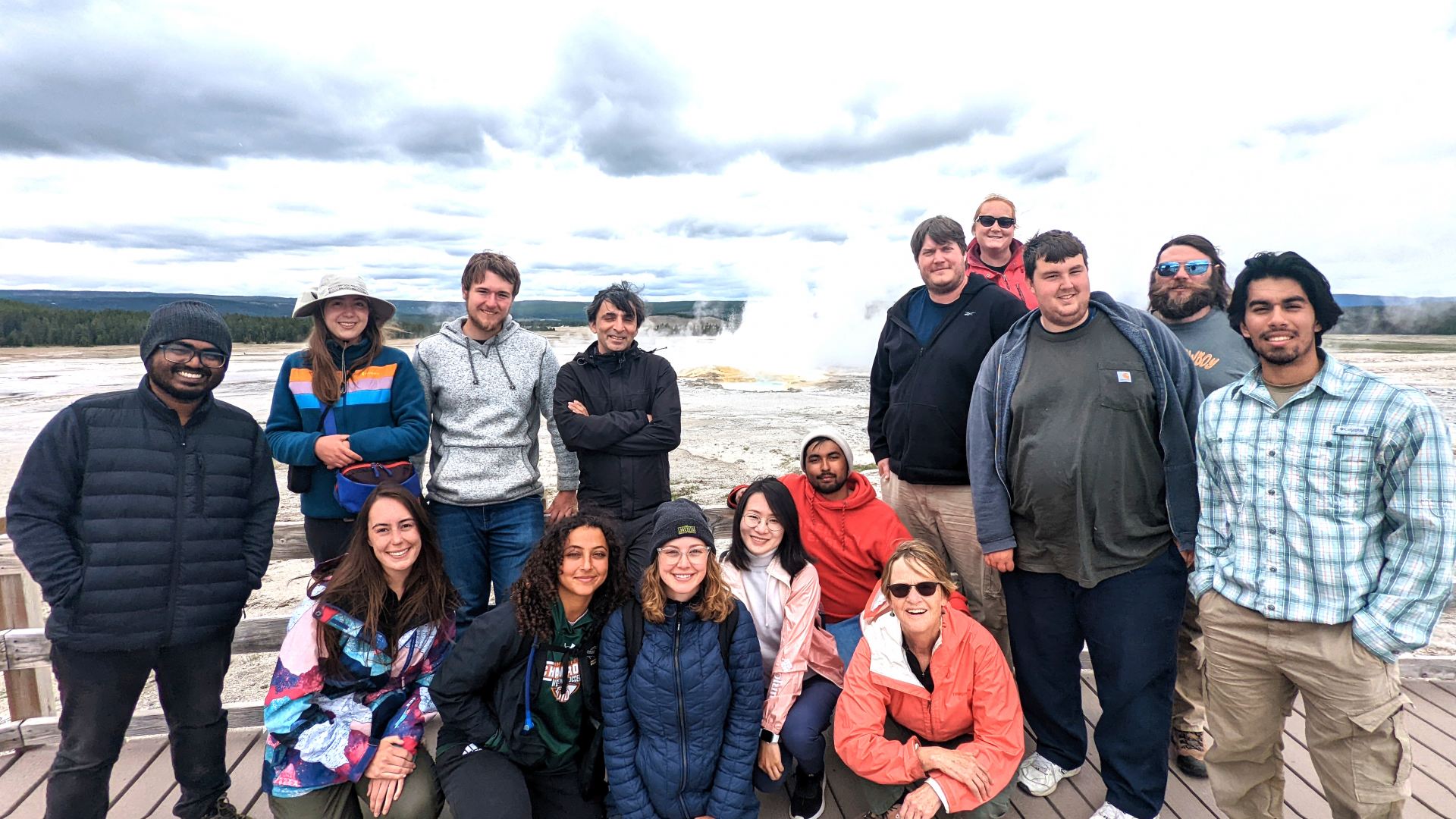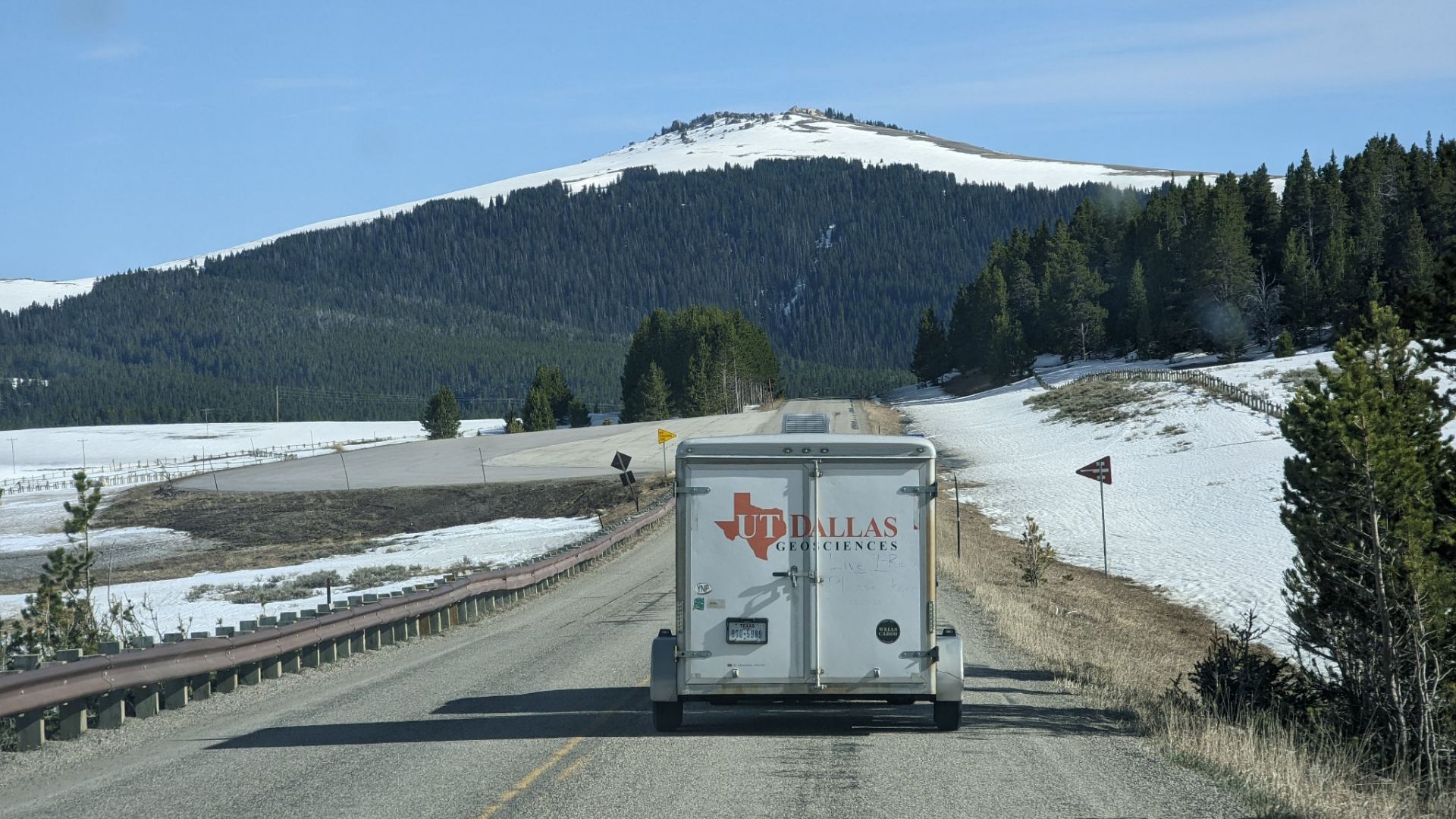
Undergraduate Field Camp
Field Geology Courses
UT Dallas Summer Field Geology Program, Geosciences 3300 and 4300
Field geological experiences remain vitally important to geoscience education of undergraduate and graduate students across the planet. The Summer Field Geology program at The University of Texas at Dallas emphasizes a rigorous, hands-on experiential approach to examining, understanding and recording – through maps, cross-sections, and reports -relationships among rocks in the Earth’s crust. The program consists of two, three-credit courses – Introductory Field Geology (GEOS 3300) and Advanced Field Geology (GEOS 4300). These courses are taught back to back, beginning in mid-May, immediately after Spring Commencement, and thus run to late June.

Each course is no longer than three weeks in duration. One geosciences faculty member is responsible for each course, and graduate student teaching assistants are also involved in the instruction of the course and an array of logistics. It is expected that most students will take GEOS3300 between their sophomore and junior years, and thus the prerequisites for the class are minimal. For GEOS 4300, it is expected that most students will take the course after their junior year.
The Introductory Field Geology course is taught in central New Mexico and southern Colorado, and takes advantage of outstanding exposures of sedimentary rocks of Mesozoic and Cenozoic age and volcanic rocks of Cenozoic age in the region. Each mapping project will involve a component of land surface geomorphology, including the inspection and mapping of glacial features in southern Colorado. All of these areas have been used for decades for field geology projects. For each of the three mapping-related projects, students turn in field notebooks, rough field maps, final field maps, final cross sections, reports, and any additional material that is specific to each project. Electricity is available for each project, so students are encouraged to bring personal computers to use to work on projects.
The Advanced Field Geology course also is conducted in New Mexico and Colorado, and immerses students in the examination of areas that are somewhat more challenging than those visited in GEOS 3300. Electricity is available for each project, so students are encouraged to bring personal computers to use to work on projects.

Prerequisites
Introductory Field Geology (3300): Physical Geology (GEOS 1303, or equivalent), Earth History (GEOS1304 or equivalent). Basic knowledge of stratigraphy, topographic map reading, and the use of a Brunton Compass and hand-held GPS is advisable. Permission of instructor may be granted under unusual circumstances.
Advanced Field Geology (4300): Introductory Field Geology (GEOS 3300, or equivalent), Mineralogy/Petrology (GEOS 2409), Stratigraphy (GEOS 3421), and Structural Geology (GEOS 3470). Permission of instructor may be granted under unusual circumstances.
Fees and Supplies
There is a course fee of $1,150 for each class, and this includes transportation to the field areas and return to Richardson as well as most board and any pertinent housing. In-state tuition for each class is about $2,050. We provide all of the necessary cooking materials; students are required to being their own eating materials. We provide all of the base materials for mapping projects. A list of mapping supplies and personal items is included in the overview and supplies document (link below).
Staff
Introductory Field Geology (3300)
Mortaza Pirouz, Advanced Field Geology (4300)
Field Course Information and Documents
Note: These documents must be read before coming to Field Camp:
- Introductory Field Geology, Overview and Supplies
- Introductory Field Geology, Syllabus (comings soon)
- Introductory Field Geology, Basic Geological Mapping, Barnes
- Introductory Field Geology, Geological Mapping, Overview